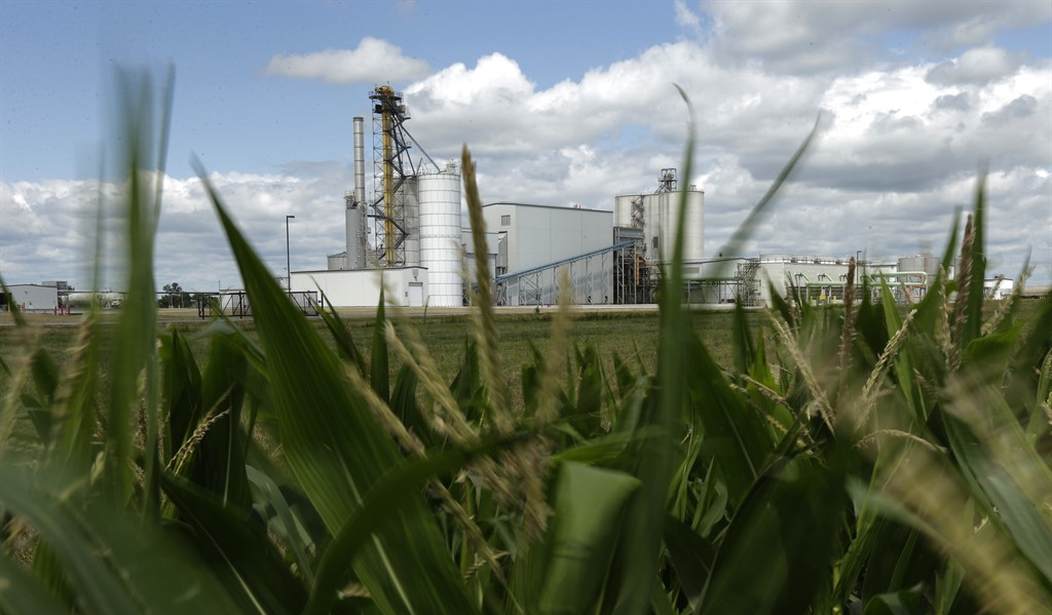A study, published in the Proceedings of the National Academy of Sciences, found that ethanol mixed in with gasoline is not a very green alternative to using just gasoline. In fact, biofuels are at least 24% more carbon-intensive than gasoline due to “emissions resulting from land-use changes to grow corn, along with processing and combustion,” according to Reuters.
Many researchers have been making this point for years. They accuse the U.S. government of catering to the whims of big agriculture by mandating ethanol to be mixed in with gasoline in ever-larger percentages. Congress has been trying to eliminate the ethanol mandates because of the hell they play with engines.
Related: Oops, Here’s Something Biden Wants You to Forget About Gas Prices
A Department of Agriculture study had previously shown ethanol to be relatively benign and a greener alternative than gasoline.
“Corn ethanol is not a climate-friendly fuel,” said Dr. Tyler Lark, assistant scientist at the University of Wisconsin-Madison Center for Sustainability and the Global Environment and lead author of the study.
Geoff Cooper, president and CEO of the Renewable Fuels Association, the ethanol trade lobby, called the study “completely fictional and erroneous,” arguing the authors used “worst-case assumptions [and] cherry-picked data.”
Under the U.S. Renewable Fuel Standard (RFS), a law enacted in 2005, the nation’s oil refiners are required to mix some 15 billion gallons of corn-based ethanol into the nation’s gasoline annually. The policy was intended to reduce emissions, support farmers, and cut U.S. dependence on energy imports.
As a result of the mandate, corn cultivation grew 8.7% and expanded into 6.9 million additional acres of land between 2008 and 2016, the study found. That led to widespread changes in land use, including the tilling of cropland that would otherwise have been retired or enrolled in conservation programs and the planting of existing cropland with more corn, the study found.
Turning millions of acres of good farmland into fuel factories was starving people and driving up the cost of food for everyone. Plus, many drivers complained that engine performance suffered from using biofuel, and the increased maintenance cost on automobiles was unnecessary.
Tim Searchinger, a visiting scholar at Princeton University, says that the researchers finally looked at the “ripple effects” of using corn for fuel and found some expected problems.
“The simplest explanation is that when we divert our corn or soybeans to fuel, if people around the world are going to continue to eat the same amount that they’re already eating, you have to replace that food somewhere else,” Searchinger says.
Searchinger and his colleagues looked globally to figure out where the new cropland is coming from, as American farmers produce fuel crops where they used to grow food. The answer is that biofuel production here is driving agriculture to expand in other parts of the world.
“That’s done in a significant part by burning down forests, plowing up grasslands. That releases a great deal of carbon dioxide,” Searchinger says.
In fairness, climate activists have always been lukewarm about ethanol and other biofuels because the gains in any reduction of greenhouse gasses were always offset by the loss of land grown for food.
Republicans from farm states are some of the only politicians who have kept this program alive since it began in 2003. It’s hoped that this study will drive a wooden stake through the heart of these ethanol mandates and allow the market to determine what owners put into their cars.










